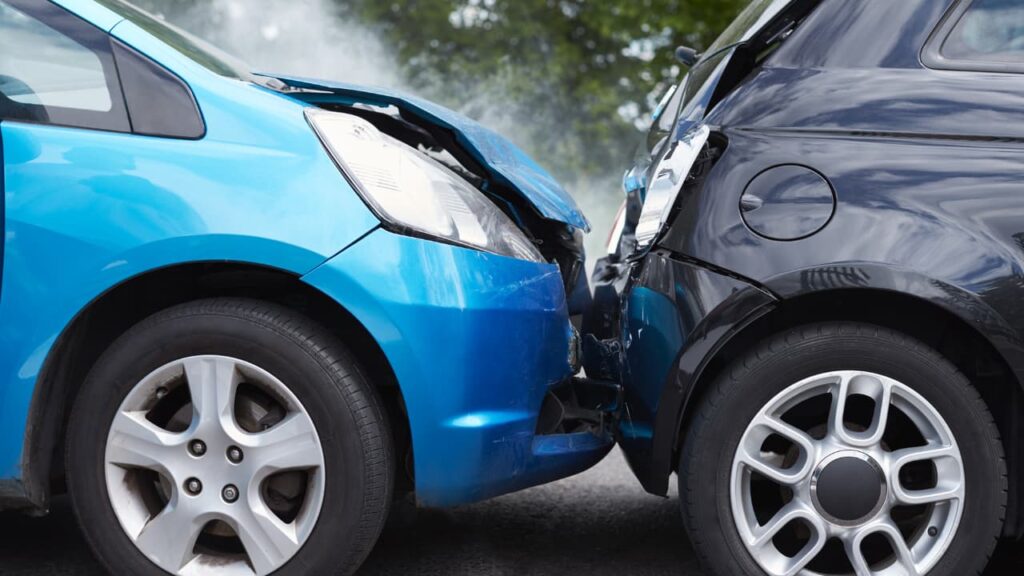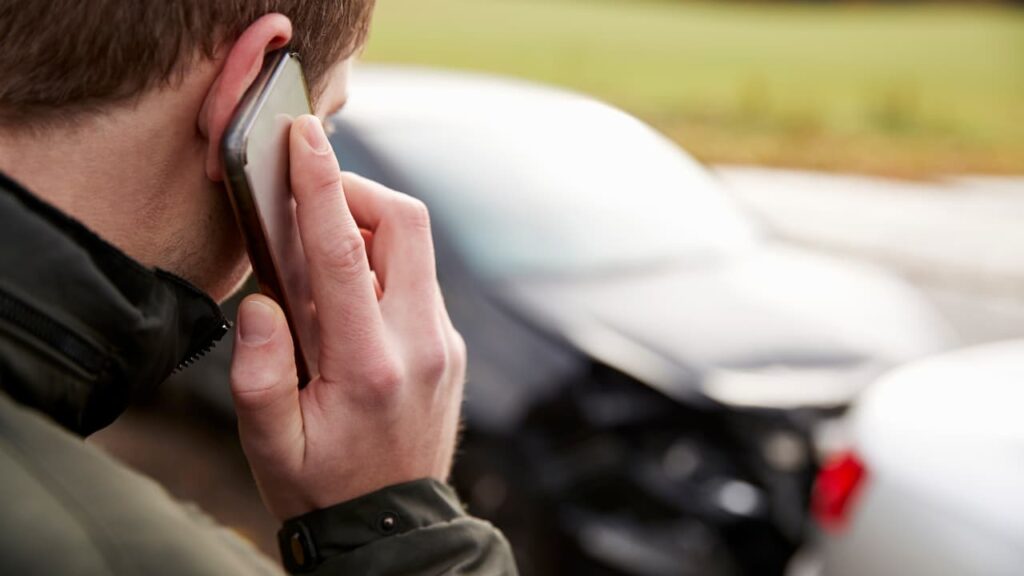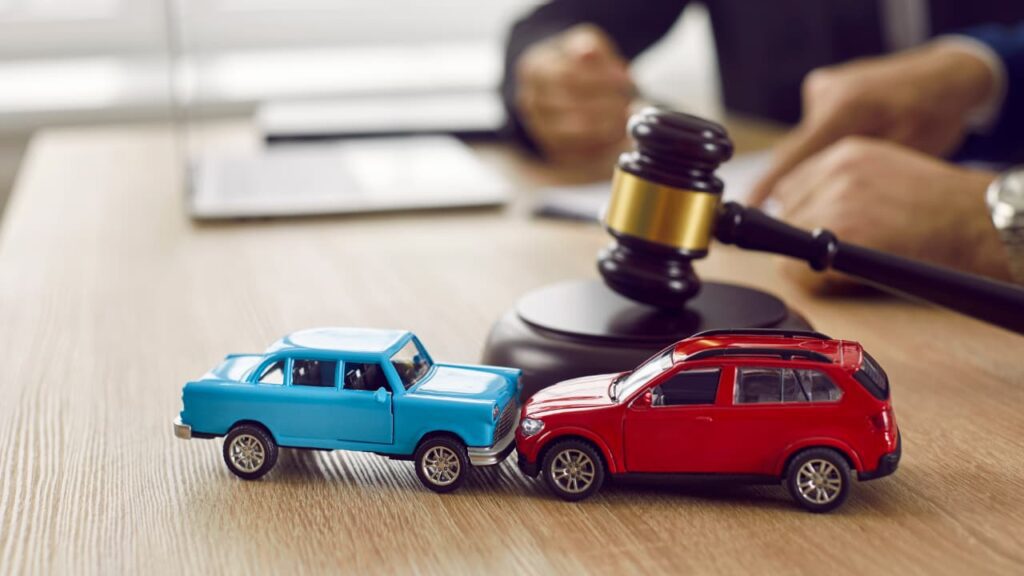Every day, countless people find themselves involved in minor car accidents on Indiana’s roads. Whether it’s a fender bender in downtown Indianapolis or a small collision on a rural road, these incidents can be stressful and confusing.
While they may seem insignificant compared to major crashes, even minor accidents can have lasting impacts on your finances, health, and legal standing.
In Indiana, the aftermath of a minor car accident isn’t just about exchanging insurance information and going on your way. There are specific legal requirements, potential health concerns, and insurance implications that every driver should be aware of.
Understanding your rights and responsibilities in these situations is crucial to protecting yourself and ensuring fair treatment.
At Yosha Law Firm, we’ve seen firsthand how a seemingly minor accident can escalate into a complex legal matter. That’s why we believe it’s essential for every Indiana driver to be informed about the proper steps to take following any collision, no matter how small it may seem.
In this guide, we’ll walk you through what qualifies as a minor car accident, your legal obligations, and when it might be in your best interest to consult with an experienced car accident attorney in Indiana. Our goal is to empower you with the knowledge to make informed decisions and protect your rights, should you ever find yourself in this all-too-common situation on Indiana’s roads.
What Qualifies as a Minor Car Accident in Indiana?
In Indiana, the distinction between a minor and major car accident isn’t always clear-cut. However, understanding what constitutes a minor accident can help you navigate the aftermath more effectively.
Definition and examples of minor accidents
Generally, a minor car accident in Indiana is one that results in minimal damage to vehicles and no significant injuries to the people involved. Some common examples include:
- Fender benders: Low-speed collisions that typically occur in parking lots or slow-moving traffic.
- Rear-end collisions at low speeds: When one vehicle bumps into the back of another without causing major damage.
- Sideswipe incidents: Where vehicles traveling parallel to each other make light contact.
- Single-car accidents: Minor incidents where a driver hits a stationary object without causing substantial damage.
It’s important to note that even if an accident seems minor, it can still have legal and financial implications.
Common Types of Damage and Injuries in Minor Accidents
While minor accidents generally don’t result in severe consequences, they can still cause various types of damage and injuries:
Vehicle Damage:
- Scratches, dents, or minor body damage
- Cracked or chipped windshields
- Broken headlights or taillights
- Damaged bumpers
- Minor alignment issues
Injuries:
- Whiplash or neck strain
- Mild concussions
- Bruises or contusions
- Soft tissue injuries
- Minor cuts or abrasions
It’s crucial to remember that some injuries, particularly those involving soft tissue, may not be immediately apparent. Symptoms can develop hours or even days after the accident. This is why it’s always advisable to seek medical attention after any car accident, no matter how minor it may seem.
At Yosha Law Firm, we’ve seen cases where initially minor accidents led to more significant issues down the line. That’s why we always recommend thorough documentation and professional evaluation, even for accidents that seem inconsequential at first glance. Your health and legal rights are too important to leave to chance.
Indiana Car Accident Reporting Requirements
Understanding when and how to report a car accident in Indiana is essential for protecting your legal rights and complying with state law. Even for minor accidents, proper reporting can be important to document if complications arise later.
You’ll find the Indiana full statute regarding car accidents and accident reporting requirements here: IC 9-26.
When you’re legally required to report an accident
In Indiana, you are required by law to report a car accident if:
- The accident resulted in injury or death to any person
- The total property damage exceeds $1,000
- Any of the drivers involved are uninsured
It’s important to note that even if your accident doesn’t meet these criteria, reporting it can still be beneficial for insurance purposes and to create an official record of the incident.
How to report an accident in Indiana
To report a car accident in Indiana, follow these steps:
- Call the police immediately if there are injuries or significant property damage. They will come to the scene and create an official accident report.
- If the accident is minor and there are no injuries, you can file a report online through the Indiana Bureau of Motor Vehicles (BMV).
- Notify your insurance company as soon as possible, regardless of fault. Many insurance policies require prompt reporting of any accident.
- File an Operator’s Proof of Insurance form with the Indiana Bureau of Motor Vehicles (BMV) within 10 days of the accident.
Timeframes for Reporting
Indiana law specifies several important timeframes for accident reporting:
- Immediate reporting: You must immediately stop at the scene of an accident and report it to the police if there are injuries, deaths, or significant property damage.
- 10-day deadline: You have 10 days from the date of the accident to file the Operator’s Proof of Insurance form with the BMV.
- Insurance reporting: While not a legal requirement, most insurance companies require you to report an accident within 24-72 hours.
- Statute of limitations: If you’re considering legal action, Indiana has a two-year statute of limitations for personal injury claims arising from car accidents.
At Yosha Law Firm, we emphasize the importance of prompt and proper accident reporting. Even if an accident seems minor, creating an official record can be crucial if unforeseen complications arise. If you’re unsure about your reporting obligations or need assistance with the process, don’t hesitate to reach out to our experienced team for guidance.
Steps to Take After a Minor Car Accident in Indiana
Even in minor accidents, taking the right steps immediately after the incident can protect your health, legal rights, and financial interests. Here’s what you should do:
Ensuring Safety and Seeking Medical Attention
- Check for injuries: Immediately assess yourself and others for any injuries, no matter how minor they may seem.
- Move to safety: If possible, move your vehicle to a safe area out of traffic to prevent further accidents.
- Call 911: Even for minor accidents, it’s advisable to call the police. They can create an official report, which can be valuable for insurance claims.
- Seek medical attention: Even if you feel fine, some injuries may not be immediately apparent. It’s best to get checked by a medical professional as soon as possible.
Documenting the Accident Scene
- Take photos: Capture images of all vehicles involved, focusing on areas of damage. Also, photograph the overall accident scene, including road conditions and traffic signs.
- Note the time and location: Record the exact time and location of the accident.
- Gather witness information: If there are any witnesses, get their contact information.
- Write down your account: While the details are fresh in your mind, write down exactly what happened from your perspective.
Exchanging Information with Other Parties Involved
- Driver’s information: Obtain the name, address, phone number, and email of all drivers involved.
- Insurance details: Get the insurance company name and policy number from each driver.
- Vehicle information: Note the make, model, year, and license plate number of all vehicles involved.
- Avoid admitting fault: Be courteous, but avoid discussing who was at fault or apologizing, as this could be used against you later.
Remember, even in minor accidents, it’s crucial to be thorough in gathering information and documenting the scene. At Yosha Law Firm, we’ve seen cases where seemingly minor accidents led to significant claims. The information you gather at the scene can be invaluable if complications arise later.
If you’re unsure about what to do after a minor accident or if you’re facing any challenges with your claim, don’t hesitate to contact our experienced team. We’re here to guide you through the process and ensure your rights are protected.
Understanding Indiana’s Fault System for Car Accidents
Indiana follows a “fault” system for car accidents, which means the person responsible for causing the accident is also responsible for any resulting harm. However, it’s not always as simple as assigning 100% blame to one party. Indiana uses a system called “modified comparative fault,” which can significantly impact your ability to recover compensation after an accident.
Explanation of Comparative Fault
Indiana’s modified comparative fault system works as follows:
- Each party involved in an accident can be assigned a percentage of fault.
- You can recover damages as long as you’re less than 51% at fault for the accident.
- Your compensation will be reduced by your percentage of fault.
For example, if you’re found to be 20% at fault for an accident and your damages total $10,000, you would be eligible to recover $8,000 (the total damages minus your 20% fault).
It’s crucial to understand that if you’re found to be 51% or more at fault, you cannot recover any compensation under Indiana law.
How Fault Affects Insurance Claims and Compensation
The determination of fault plays a significant role in how insurance claims are processed and the compensation you may receive:
- Insurance Claims: When you file a claim, insurance adjusters will investigate to determine each party’s degree of fault. This assessment will influence how much the insurance company is willing to pay for your claim.
- Compensation Amounts: As mentioned earlier, your compensation will be reduced by your percentage of fault. This applies to both insurance settlements and court awards.
- Legal Strategy: Understanding fault can help guide your legal strategy. If you’re close to the 51% fault threshold, it becomes even more critical to have strong evidence and legal representation to argue your case.
- Multiple Parties: In accidents involving multiple parties, fault can be distributed among several individuals, further complicating the claims process.
At Yosha Law Firm, we understand the nuances of Indiana’s fault system and how it can impact your case. Even in minor accidents, a skilled attorney can help ensure that fault is accurately determined and that you receive fair compensation.
Remember, insurance companies may try to assign you a higher percentage of fault to reduce their payout. Having an experienced car accident attorney on your side can help protect your rights and maximize your compensation. If you’re dealing with a dispute over fault in your accident claim, don’t hesitate to reach out to our team for a free consultation.
When to Hire an Indiana Car Accident Lawyer for a Minor Accident
While many minor car accidents can be resolved without legal representation, there are situations where hiring an experienced Indiana car accident lawyer can be crucial to protecting your interests and ensuring fair compensation.
Situations Where Legal Representation is Beneficial
- Disputes over fault: If there’s any disagreement about who caused the accident, a lawyer can help gather evidence and argue your case.
- Injuries that worsen over time: Some injuries, particularly soft tissue injuries, may not be immediately apparent or may worsen days or weeks after the accident.
- Insurance company denials or low-ball offers: If the insurance company is refusing to pay or offering an unfairly low settlement, a lawyer can negotiate on your behalf.
- Complex cases involving multiple parties: Accidents involving more than two vehicles can complicate fault determination and compensation.
- Accidents involving uninsured or underinsured motorists: These situations often require additional legal expertise to ensure you receive fair compensation.
- When your damages exceed insurance policy limits: A lawyer can help explore additional avenues for compensation.
How a Lawyer Can Help with Insurance Negotiations
Insurance companies are in the business of minimizing payouts. An experienced car accident attorney can:
- Handle all communication with the insurance company, protecting you from saying something that could harm your claim.
- Accurately value your claim, including future medical expenses and non-economic damages like pain and suffering.
- Present a strong case with supporting evidence to justify your compensation demand.
- Negotiate skillfully to maximize your settlement.
- If necessary, prepare your case for trial if a fair settlement cannot be reached.
The Role of an Attorney in Protecting Your Rights
Beyond negotiations, a car accident attorney plays a crucial role in safeguarding your legal rights:
- Ensuring compliance with Indiana’s statute of limitations and other legal deadlines.
- Advising you on your rights and obligations under Indiana law.
- Protecting you from unfair blame or exploitation of Indiana’s comparative fault rules.
- Gathering and preserving crucial evidence to support your claim.
- Providing objective advice on when to settle and when to pursue litigation.
At Yosha Law Firm, we’ve seen how even minor accidents can lead to significant complications. Our experienced attorneys are committed to ensuring that your rights are protected and that you receive fair compensation for your injuries and damages. We offer free initial consultations to evaluate your case and provide guidance on the best course of action.
Remember, consulting with a lawyer doesn’t necessarily mean you’ll need to go to court. Often, having legal representation can expedite the settlement process and lead to a more favorable outcome.
If you’re unsure whether you need a lawyer after your minor car accident, don’t hesitate to reach out to us for a free, no-obligation consultation.
Potential Consequences of Not Reporting a Minor Car Accident
- Legal implications: Potential fines and license suspension
- Insurance complications: Risk of claim denial and policy cancellation
- Impact on future claims: Difficulty proving injuries or damages that surface later
Minor car accidents in Indiana can have significant implications. Understanding your rights, reporting requirements, and when to seek legal help is critical.
Don’t navigate the aftermath of a car accident alone. Our experienced team is ready to offer you a free case evaluation so we can help you explore the merits of your case and guide you through the legal process.









